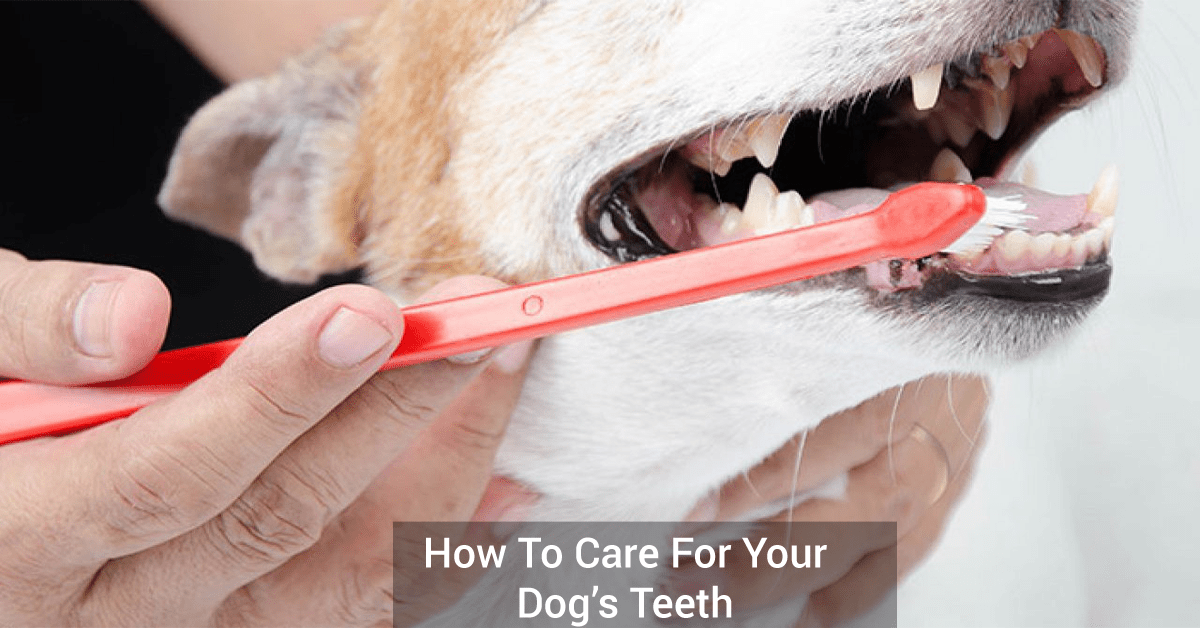The article discusses the importance of maintaining oral hygiene in dogs with detailed information on methods and tips. The means of detecting the signs of dental problems with preventive care are also explained.
Maintaining proper oral hygiene is an important aspect of a dog’s overall health that must not be neglected. If a dog is not given proper care, it may suffer from periodontal diseases. If untreated, dental diseases can result in tooth loss and other painful infections in a dog. Dogs that lose their teeth are prone to malnutrition. Problems in teeth can also cause life-threatening diseases of the heart, kidney, and liver in dogs. Therefore, it is crucial to optimize your dog’s dental health.
Early Signs of Dental Disease
A dog owner can easily detect signs of any dental discomfort in a dog. A dog starts showing the following signs if going through dental issues:
- A bad breath that is unpleasant and stinks is a sign of tooth decay.
- Healthy gums in dogs are generally pink, whereas white, red, or swollen gums are concerning.
- Broken, misaligned, and infected teeth
- Growth of bumps.
- Excessive drooling.
- A lethargic and irritable dog that shows little or no interest in eating
How to Prevent Periodontal Diseases?
Oral hygiene is one of the most important aspects of a dog’s physical health. A dog’s teeth will become clogged up with plaque and turn into tartar if they are not properly cleaned. In addition, it can lead to inflammation, tenderness, and gingivitis in the mouth.
Dog owners can improve the oral health of their dogs by investing in preventive methods. Proper oral hygiene can be followed by maintaining brushing routines, selecting the right food, and regular dental visits.
Brushing Your Pet’s Teeth
Brushing is a great way to remove harmful bacteria from building up on teeth and gums. There is flavored toothpaste specially made for dogs. One should not use human toothpaste for their pets, as their ingredients are not suitable for dogs’ usage. One can choose from either a finger toothbrush or a soft-bristled one. One needs to be patient and gentle while introducing brushing to the dogs. It is best to start brushing your pet’s teeth early when it is a puppy.
Mastering the brushing technique
First, let your pet sniff and lick the toothpaste so that it becomes comfortable with the process. Then, gently touch the toothbrush to their teeth. The brush should be kept at an angle of 45 degrees. Move the brush in a circular motion. Move it from front to back and top to bottom. Try to make it fun and enjoyable. Always reward and praise your pet. Gradually, your pet will get accustomed to it.
Dental treats and chews
Dental treats can also be used to improve a dog’s oral health. They freshen the breath and clean the mouth. Give them dentists-approved treats only. Chew toys should not be too hard or corrosive. Chewing helps in breaking up plaque. Rubber bones and nylon toys are recommended for dogs.
A dental chew should be of the correct size. A smaller one can cause choking. Avoid hard chews and bones as they can break the teeth. In addition, chews can cause excessive weight gain, so it is essential to keep an eye on the calories consumed by the dog.
Dental wipes are also available that can be rubbed against the dog’s teeth. Although they are easy to use, they do not reach every part of the mouth. Mouthwashes that treat dental problems in dogs are also available and can be added to the water. These are used in case a dog denies brushing.
Feed
Pets with a healthy diet are less likely to suffer from oral diseases in later life. Diets and supplements can make a huge difference. Dry food is better than wet food. Crunchy kibbles can be given to them. Specialized dental kibbles are also available for tooth-related problems.
Diets that promote the oral health of dogs are also available. The diet should be rich in probiotics and prebiotics. A balanced diet with a low level of carbohydrates is best for dogs. In addition, omega 3 fatty acids, raw food, and antioxidants are recommended for your canine’s good health.
Professional Cleaning
Professional cleaning is vital to diagnose and treat any dental problem your dog may be experiencing. For your dog to be healthy, you must schedule regular examinations and cleanings. Routine cleaning should be done every six months. Proper dental care is beneficial in the long run and can save you from an expensive procedure later.



